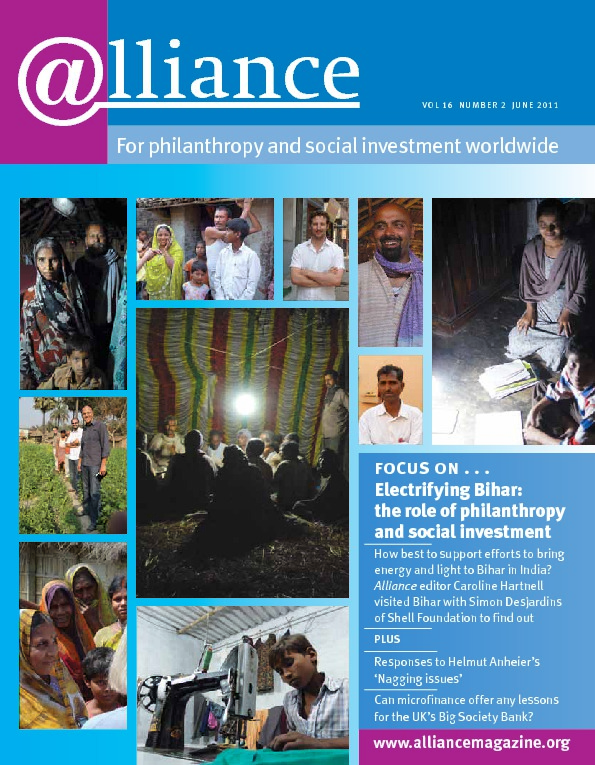In the March issue of Alliance, among other things, Helmut Anheier suggests that European foundations should take accountability and transparency more seriously. These are challenging concepts right across Europe in every sector. Transparency and its big brother accountability are culturally bound norms that require shared values. I don’t know what the view of Europe looks like from Germany, but from the Netherlands it is pretty apparent that European nations and peoples have not yet agreed on a norm for transparency. The differences among cultures are large, with transparency valued quite highly in places like the UK and privacy rights and the concomitant willingness to trust valued highly in other cultures. A comparison with the US on these issues leads to unrealistic expectations because the US has culturally shared national norms on transparency and accountability, with specific laws for the philanthropy sector to reinforce them. Europe has neither.
Defining the stakeholders whose needs could be met by greater transparency and accountability could help to convince foundations in Europe of the value of creating a common information source about our work and, more critically, of the importance of investing in it.
Oddly enough, the key stakeholder that comes to mind is us. We foundations could actually benefit the most from sharing basic information and knowledge with each other. It would help all individual foundations to be more visible; add credibility and weight to our actions as a sector; make us smarter in our daily actions; and, lastly, keep us from wasting scarce resources by eliminating duplication of efforts.
The place to watch for greater transparency is in foundation collaborations. The EFC Forum for Roma Inclusion, for example, has just begun to develop a shared database on projects supporting Roma communities. What information is considered ‘normal’ to share becomes an immediate point of discussion, and through that discussion a shared norm is developed. Other collaborations, such as that spearheaded by Mama Cash on gender issues, generate an immediate need for greater transparency.
Fortunately, we are all much better equipped today to actually improve our practice. Technology gains, the creation of the EFC and DAFNE, and a common currency help to resolve many of the obstacles that formerly made it difficult to gather and compare information. More collaboration among foundations will generate an obvious constituency for transparency and shared norms.
Lisa Jordan
Executive director, Bernard van Leer Foundation






Comments (0)